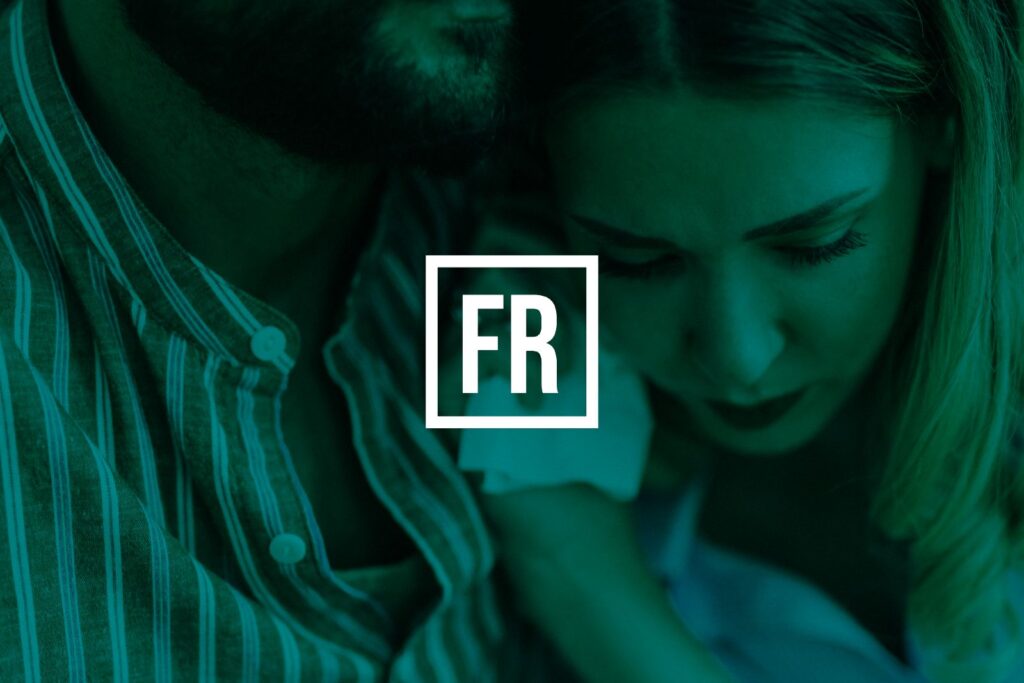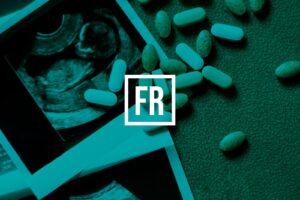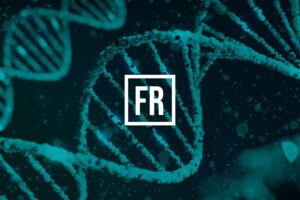Clare: Welcome both and many thanks for talking with Fertility Road about this vital topic. For many fertility patients who are considering taking the donor egg and/or donor sperm route to parenthood, what is your single, most essential piece of advice?
Tracey: To take your time, remembering that sadly though you can expect to feel 100% ready to move forwards, that is unlikely to be the reality and being 51% ready will be good enough, you will know when you are ready to begin to make treatment plans a reality. Embracing donor conception often comes after initial fertility treatment, or tests that confirm donor eggs and/or donor sperm would be the most effective, or only way to try and conceive, but even donor conception does not have a guaranteed outcome. So, feelings of uncertainty, fear, confusion are all routinely present, along with hope.
Angela: It’s absolutely vital that if you are considering donation you take your time to reach a decision that feels right for you. Everybody takes a different amount of time to reach a decision, there is no right or wrong time limit to take. Donation is not a route to parenthood that for many people comes as a natural consideration and the consideration often comes after a long arduous journey when you are faced with extreme vulnerability. Donation raises complex personal and ethical challenges and it is completely natural to have an initial gut reaction to the notion of donation and there will no doubt be 1001 different questions, thoughts and feelings circling round your mind. Ensuring you have the opportunity to take stock, reflect and talk through your thoughts and feelings with an Accredited fertility counsellor can be hugely beneficial.
Clare: In your views, what should prospective donor recipient parents be aware of in terms of their mental health right at the start of the process?
Tracey: Although social media often suggests that in order for treatment to be successful there is a need for calm and positivity that can feel an impossible ask! Recognising that treatment is going to make real the chance of a much-wanted pregnancy becoming a reality, hope is definitely in the mix, but often too hard to hear or claim. Treatment is going to be stressful as the flip side of hope is loss. The loss of potential for a much-wanted pregnancy is also a potential outcome, and also relevant. So, when people share that fertility treatment feels like an emotional rollercoaster, it’s because that is exactly how our emotions are behaving, from extreme highs to extreme lows. There will also be triggers everywhere in society, signs you may notice that promote feeling happy and excited, or can bring you crashing down. Neither the highs or lows necessarily impact on treatment, but both can leave you feeling exhausted. Having a tool box of strategies to manage the stress involved is key to successfully embracing the rollercoaster and helping you to hold on tight.
Angela: Right at the start of the process, prospective recipient parents should be aware that they are likely to be feeling in a vulnerable place; they may have faced multiple losses, many of which are hidden – unsuccessful treatment, loss of genetics, loss of a “mini-me” to name a few and prospective parents may well be grieving these losses and processing what has happened so far.
Once in a place to consider donation, it can be emotionally, mentally and physically exhausting – donation does not come with any guarantees and those feelings of hope and dread can continue to co-exist along with the intensified psychological investment. So, it is highly likely they will continue to be feeling vulnerable. It is okay to have a range of feelings and behaviours and having good support from family, friends and even professionals together with balanced coping techniques will be key to navigate the path ahead.
Clare: How can prospective donor recipient parents best equip themselves psychologically to make the decision to take the Donor route?
Tracey: Meeting other people can be so helpful, not just people going through treatment, but adults born through donor conception can really help to make things feel a bit more real. The Donor Conception Network and We Are Donor Conceived both have resources that help to raise awareness of the realities of living with donor conception as parents, as children and as donor conceived adults.
Angela: Really taking the time to talk through your concerns, questions, thoughts and feelings with a professional can be so beneficial – there is no such thing as a “silly” concern. If it’s a concern of the prospective parent then it needs exploring. Talking to others whom have been in a similar position or completed their family via donation can be hugely beneficial and can help you feel less alone and isolated knowing there are other people out there who had the same or similar thoughts and feelings. Tracey has mentioned some great resources and I would also recommend Paths to Parenthood (www.definingmum.com) for anyone considering donation to connect with others and www.thestorkandi.com is another fabulous resource for those contemplating donation as a solo parent.
If prospective parents are considering talking to their family and friends about donation, I would encourage them to bear in mind that it is completely natural that family and friends will have a view point and no doubts lots of questions too. Remember your initial reactions when you were first considering donation? it’s only natural others will have questions too. The more confident and comfortable you feel with your decision to proceed with the donation route the easier it will be to deal with questions and any concerns from family and friends.
Clare: What is the role of the fertility clinic re: mental health support? Are clinics legally obliged to offer counselling and if so, at what stages of the Donor process?
Tracey: Clinics do need to offer counselling, as a space to explore the implications of your treatment and it is often a mandatory requirement. But your counselling appointment also helps you to create a robust foundation of professional support, resources provided by your counsellor may be useful before, during and following treatment too.It also ensures you’ve met with one of the clinic’s counsellors ahead of treatment so if support would be useful in the future, it isn’t the first time you’ve met.
Angela: Yes, all licensed fertility clinics in the UK must by law offer all patients and their partners (if applicable) counselling. Counselling should routinely be offered at all stages of treatment. In relation to the donation process, counselling must be offered prior to treatment commencing, together with a suitable opportunity for the counselling to be taken up. Counselling should also be offered throughout treatment, donation or storage processes and also afterwards if requested.
Clare: What does ‘Implications Counselling’ mean and is it mandatory?
Tracey: The offer of implications counselling is a mandatory requirement, however not all clinics make counselling mandatory as part of their treatment pathway – although many do. Implications Counselling provides a safe space to explore the impact of your treatment individually and as a couple if you are in a relationship. It provides a space to enhance your awareness of the longer term social and ethical implications around donor conception as well as having clarity around the legal framework.
Often fertility decisions focus on your own needs, wants and desires. Within your counselling appointment we begin to acknowledge the importance of transparency and recognition of how children who are donor conceived process what it means to them at different ages and developmental stages. There is much debate around the impact of nature and/or nurture, but a growing curiosity in genetics is clear, with home DNA tests increasing in popularity and becoming so much cheaper in price. The need to be comfortable about decisions around sharing information take on new meaning when discoveries can be made so easily outside of a safe family setting. But openness and transparency are not encouraged just because of DNA tests, the ethos promotes secure attachments, and has been our approach in the UK since the Human Fertilisation and Embryology Authority (HFEA) was established back in November 1990.
Angela: Yes, it is mandatory for all UK licensed clinics to offer implications counselling. As best practice, I would also like to see implications counselling a mandatory part of the donation pathway to ensure that donors and recipients, have had the opportunity to explore and reflect on the decisions they are making and are therefore able to give fully informed consent.
Implications counselling provides a space where-by individuals can be supported to reflect on, process and accept their current situation and how this may differ from their expectations. Individuals are encouraged to explore their own personal circumstances including work, family and social relationships so that they can manage the degree of privacy that they are comfortable with, during treatment and beyond.
I always view implications sessions as an opportunity to explore and consider family formations and the meaning for each individual so that they are making a fully informed decision that it is the right treatment option for them. Choosing to go ahead with donation is a life-long decision.
Clare: What about the mental health of the egg and/or sperm donor? How do recipients know that their donors truly wanted to donate gametes for the ‘right’ reasons?
Tracey: There are many ‘right’ reasons for donating, for many it is a desire to want to help others, they may or may not have, or indeed want, children of their own but have a desire for their gametes not to be wasted. Our unconscious ego can have a primal desire to procreate, just as parents embracing donor conception have an ego that is wanting to be parents.
Many people do not recognize the in-depth process that donors go through, just because they want to help others to try and conceive. Sperm donors have often been with a sperm bank for around 15 months before sperm is available to patients, egg donors have a shorter process, but have often thought about the implications of their decisions for a longer period of time.
The UK has a system that allows donors to withdraw consent up until the time an embryo is transferred or sperm used for insemination. This ensures any child born as a result of donor conception knows that their donor’s consent to donate was in place at the time of conception.
Donors have to be comfortable with sharing their donation with those close to them – parents, partners, their own children in the future if they are not parents at the time of donating. Thinking further ahead enables a time for reflection, the University of Manchester created videos for potential donors to help consider some of the thoughts and feelings that can come up in the future for them and their wider families, around them having donated their gametes.
People choosing their donor can also read more about the donors and their reasons for donating as part of their donor selection process. The donor’s reasons for donating may be of interest to them… and also to any child they go on to conceive.
Angela: This is a good question and I am often asked “Why donors donate” – There are a variety of reasons why donors donate and I think it’s healthy for prospective recipients to put themselves in the shoes of the donor and consider their motivations and the donor’s desires in years to come (which is often a concern for many prospective recipients). There are numerous research studies out there of donors’ motivations and I often direct individuals to these studies or organizations which provide insight, videos and webinars of donor’s experiences. All donors are asked to complete a profile about themselves and are encouraged to consider carefully what they write in these, including their motivations for donating.
It is worth remembering all donors are medically screened and like prospective recipients it is mandatory for clinics to offer implications counselling to donors too. The anonymity legislation around donation which came into effect in 2005 has gone a long way to ensuring donors are giving a great deal of thought to the longevity of their donation and the potential implications.
Clare: Is counselling most important at the beginning of the Donor process or is it something that should be ongoing?
Tracey: Implications counselling ahead of treatment enables a meeting where you can see if you connect with your counsellor, it can sometimes make it easier to reach out to them again as treatment progresses, or prompt seeking support from another counsellor in the team. Where more regular counselling would be beneficial, you can find independent specialist fertility counsellors via BICA, the British Infertility Counselling Association.
Angela: This is quite tricky to answer because in all honesty, everybody is going to have different needs.
I would always advocate for counselling at the beginning of the process to explore any trauma, grief and loss as mentioned above and explore whether donation is the right treatment option for the individual. Unfortunately, I have seen numerous times the complexities (maybe unresolved grief or regret for example) when counselling is not offered or taken up at the outset.
Whether counselling continues throughout the process or afterwards is very much based on an individual’s needs, dependent on the range of emotions which are evoked as time goes on.
Clare: What should recipients do if they have regrets further into the Donor process?
Tracey: There is lots of support available for people having assisted conception – the medical team in the clinic, counsellors both in clinic and independent, support organisations too. Ultimately there is never an obligation for recipients to continue, taking time to pause can provide a space to work out what is prompting regrets, and to see how to move forwards.
Regrets may often be grief, the loss of fantasy around how you’d hoped to conceive can often only be felt when conceiving a different way becomes a reality.
Angela: It is never too late to access counselling. I would encourage anybody experiencing feelings of regret to seek professional support from a fertility counsellor or access support from one of the organsations mentioned above. Working through these feelings sensitively is going to be vital in ensuring your emotional and physical well-being.
Clare: Is it ‘normal’ to have emotional and psychological ‘blips’ during the Donor process? Should recipients expect to experience periods of uncertainty?
Tracey: It is absolutely normal to have blips, confirmation of your decision to move forwards, pause or stop. We have no control over the outcome of treatment but absolute control over when, how and if to go ahead. Blips, welcomed as opportunities to check in with how you’re doing individually and together can provide a welcome time to affirm your decisions too.
Angela: Yes, absolutely normal and natural to have “blips” and uncertainties and question whether you are doing the right thing. Often it is hard to admit these uncertainties particularly as many people feel like they tried hard to “convince” others they knew what they were doing and it was the right decision for them. It is common for many to experience uncertainty as it’s a huge decision to make – again, sharing and talking through how you are feeling can really relieve the weight.
Clare: How can prospective recipient parents plan ahead? How can they best plan how to share their donor story with their future children?
Tracey: The general advice around how to share information with children is from a young age and there are books for children from about the age of four that can be so useful.
I routinely suggest creating a photo album, sharing the basics of your pathway to parenthood, though this is to share with your child in the future, it’s really for parents to hold on to. When we have a story about us, that is a good story, with a happy ending, we feel better about reading it, and sharing with your child from before they can talk, around six months, helps you to find your own words, making sure they feel right for you, with them, before they can react if you struggle a bit or find it hard. When they are old enough to understand you will be ready to be welcoming of their questions. You will have claimed being Mum and Dad thanks to the donor or donors who helped by donating, the doctors and nurses doing their bit and then you the parents, growing your baby, and in to family life.
Angela: I echo everything Tracey has said here and I encourage prospective parents to start early in looking around at the various resources available to share with their children. There are various different story books available and these days there are also personalized versions of story books individuals can purchase with drawings and photographs included. My favourites are ones from the Donor Conception Network, www.dcnetwork.org and I also love the fact they have a resource pack for primary school teachers too.
One of the most important things you can do to prepare is to ensure you and any other primary care-giver ie, Grandparents, Aunties, Uncles etc., are consistent in the story and the same terminology is used so the child does not receive any conflicting stories.






